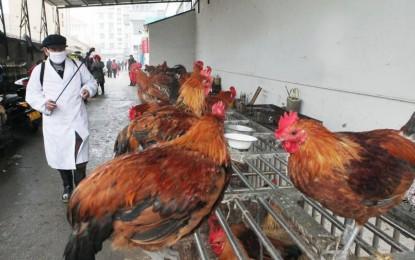BEIJING, Feb. 20 (Xinhua) -- The H7N9 bird flu has mutated to a new strain in south China, which is proven more dangerous to poultry but poses no new threat to humans, the country's disease control and prevention authorities said Sunday on its website.
The mutation was found in January in two people who had contracted H7N9 bird flu in Guangdong Province. Chinese Center for Disease Control and Prevention (China CDC) has lately confirmed the finding and reported the case to the World Health Organization (WHO), according to China CDC's website.
The agricultural sector has also found the mutation in four poultry samples from Guangdong, China CDC said.
On the basis of joint study with experts from the agricultural sector, China CDC has concluded that the mutation "does not make the virus more infectious to human at the moment."
Chinese health and agricultural authorities will continue to study the mutated strain's source and its impact while intensifying monitoring to detect H7N9's further mutations, according to China CDC's website.
China has stepped up prevention of H7N9 avian flu transmission. It has been linked to at least 88 deaths since January. About 271 human infections cases were reported.
Most infected humans have had contact with poultry or dead birds. Among them were the two patients from Guangdong.
Bird flu is known to easily mutate. The public are concerned that a mutation might make it more infectious to humans, China CDC said on its website.




 A single purchase
A single purchase









